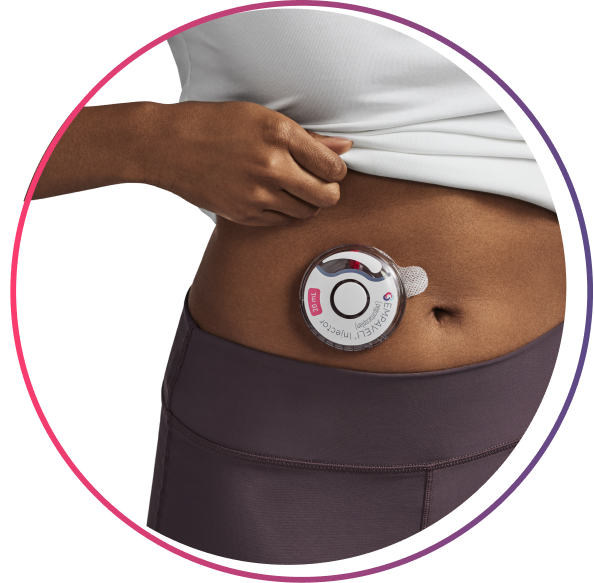INDICATION AND IMPORTANT SAFETY INFORMATION
What is the most important information I should know about EMPAVELI?
EMPAVELI is a medicine that affects your immune system and may lower the ability of your immune system to fight infections.
EMPAVELI increases your chance of getting serious infections caused by encapsulated bacteria such as Streptococcus pneumoniae, Neisseria meningitidis, and Haemophilus influenzae type B. These serious infections may quickly become life-threatening or cause death if not recognized and treated early.
- You must complete or be up to date with the vaccines against Streptococcus pneumoniae and Neisseria meningitidis at least 2 weeks before your first dose of EMPAVELI.
- If you have not completed your vaccines and EMPAVELI must be started right away, you should receive the required vaccines as soon as possible.
- If you have not been vaccinated and EMPAVELI must be started right away, you should also receive antibiotics to take for as long as your healthcare provider tells you.
- If you have been vaccinated against these bacteria in the past, you might need additional vaccines before starting EMPAVELI. Your healthcare provider will decide if you need additional vaccines.
- Vaccines do not prevent all infections caused by encapsulated bacteria. Call your healthcare provider or get emergency medical care right away if you get any of these signs and symptoms of a serious infection:
- fever with or without shivers or the chills
- fever with chest pain and cough
- fever with high heart rate
- headache and a fever
- confusion
- clammy skin
- fever and a rash
- fever with breathlessness or fast breathing
- headache with nausea or vomiting
- headache with a stiff neck or stiff back
- body aches with flu-like symptoms
- eyes sensitive to light
Your healthcare provider will give you a Patient Safety Card about the risk of serious infections. Carry it with you at all times during treatment and for 2 months after your last EMPAVELI dose. Your risk of serious infections may continue for several weeks after your last dose of EMPAVELI. It is important to show this card to any healthcare provider who treats you. This will help them diagnose and treat you quickly.
EMPAVELI is only available through a program called the EMPAVELI Risk Evaluation and Mitigation Strategy (REMS). Before you can take EMPAVELI, your healthcare provider must enroll in the EMPAVELI REMS program, counsel you about the risk of serious infections caused by certain bacteria, give you information about the symptoms of serious infections, make sure that you are vaccinated against serious infections caused by encapsulated bacteria and that you receive antibiotics if you need to start EMPAVELI right away and you are not up to date on your vaccines, and give you a Patient Safety Card about your risk of serious infections.
Who should NOT take EMPAVELI?
Do not take EMPAVELI if you:
- are allergic to pegcetacoplan or any of the ingredients in EMPAVELI.
- have a serious infection caused by encapsulated bacteria, including Streptococcus pneumoniae, Neisseria meningitidis, and Haemophilus influenzae type B when you are starting EMPAVELI treatment.
Before you take EMPAVELI, tell your healthcare provider about all of your medical conditions, including if you:
- have an infection or fever.
- are pregnant or plan to become pregnant. EMPAVELI may harm your unborn baby. Females who are able to become pregnant should have a pregnancy test before starting treatment with EMPAVELI and use an effective method of birth control during treatment with EMPAVELI and for 40 days after the last dose.
- are breastfeeding or plan to breastfeed. It is not known if EMPAVELI passes into your breast milk. You should not breastfeed during treatment with EMPAVELI and for 40 days after the last dose.
Tell your healthcare provider about all the vaccines you receive and medicines you take, including prescription and over-the-counter medicines, vitamins, and herbal supplements which could affect your treatment.
What are the possible side effects of EMPAVELI?
EMPAVELI can cause serious side effects including allergic reactions. Allergic reactions can happen during your EMPAVELI infusion and can be life-threatening. Stop your EMPAVELI infusion and get emergency medical care right away if you get any of these symptoms during your EMPAVELI infusion:
- chest pain
- trouble breathing or shortness of breath
- wheezing
- swelling of your face, tongue, or throat
- feel dizzy or faint or pass out
- fast heart rate
- nausea or vomiting
- feel confused or anxious
- skin reactions, including rash, hives, and itching
The most common side effects in adults and children 12 years of age and older with C3G or primary IC-MPGN treated with EMPAVELI include injection-site reactions, fever, common cold, flu, cough, and nausea.
These are not all of the possible side effects of EMPAVELI. Tell your healthcare provider about any side effect that bothers you or that does not go away.
Call your healthcare provider for medical advice about side effects. You may report side effects to FDA at 1-800-FDA-1088 or www.fda.gov/medwatch.
What is EMPAVELI® (pegcetacoplan)?
EMPAVELI is a prescription medicine used to treat adults and children 12 years of age and older with a kidney disease called complement 3 glomerulopathy (C3G) or primary immune-complex membranoproliferative glomerulonephritis (IC-MPGN), to reduce levels of protein in the urine (proteinuria).
Please see full Prescribing Information, including Boxed WARNING regarding risk of serious infections, and Medication Guide for additional information.
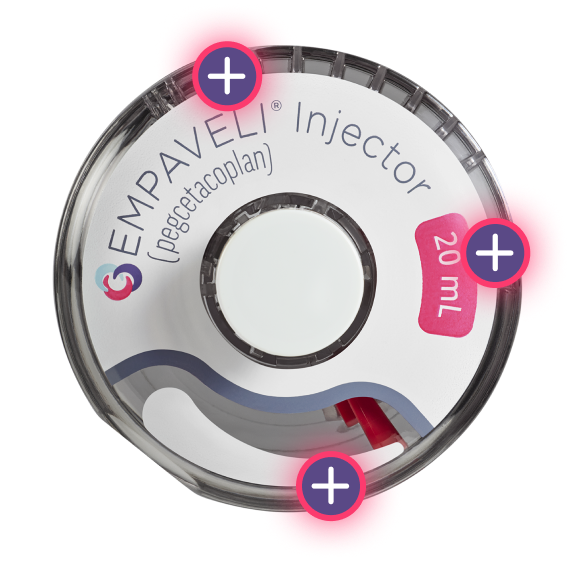
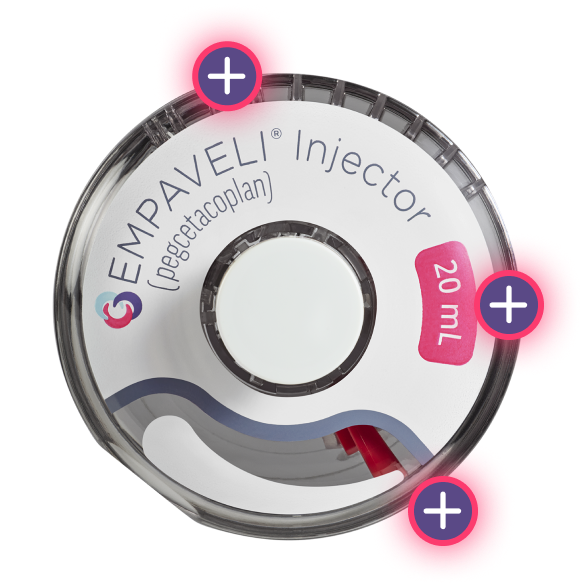
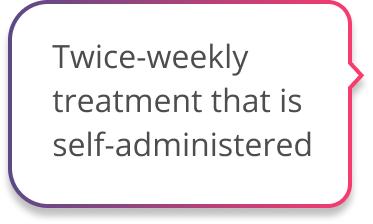
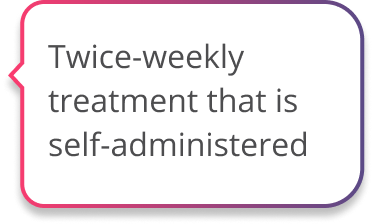




![]()


